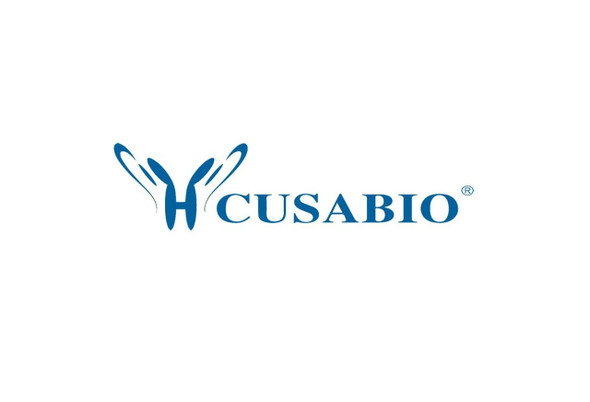Cusabio Mouse Recombinants
Recombinant Mouse Protein CYR61 (Cyr61) | CSB-YP006463MO
- SKU:
- CSB-YP006463MO
- Availability:
- 25 - 35 Working Days
Description
Recombinant Mouse Protein CYR61 (Cyr61) | CSB-YP006463MO | Cusabio
Alternative Name(s): 3CH61CCN family member 1Cysteine-rich angiogenic inducer 61Insulin-like growth factor-binding protein 10 ;IBP-10 ;IGF-binding protein 10 ;IGFBP-10
Gene Names: Cyr61
Research Areas: Immunology
Organism: Mus musculus (Mouse)
AA Sequence: TCPAACHCPLEAPKCAPGVGLVRDGCGCCKVCAKQLNEDCSKTQPCDHTKGLECNFGASSTALKGICRAQSEGRPCEYNSRIYQNGESFQPNCKHQCTCIDGAVGCIPLCPQELSLPNLGCPNPRLVKVSGQCCEEWVCDEDSIKDSLDDQDDLLGLDASEVELTRNNELIAIGKGSSLKRLPVFGTEPRVLFNPLHAHGQKCIVQTTSWSQCSKSCGTGISTRVTNDNPECRLVKETRICEVRPCGQPVYSSLKKGKKCSKTKKSPEPVRFTYAGCSSVKKYRPKYCGSCVDGRCCTPLQTRTVKMRFRCEDGEMFSKNVMMIQSCKCNYNCPHPNEASFRLYSLFNDIHKFRD
Source: Yeast
Tag Info: N-terminal 6xHis-tagged
Expression Region: 25-379aa
Sequence Info: Full Length of Mature Protein
MW: 41.1 kDa
Purity: Greater than 90% as determined by SDS-PAGE.
Relevance: Promotes cell proliferation, chotaxis, angiogenesis and cell adhesion. Appears to play a role in wound healing by up-regulating, in skin fibroblasts, the expression of a number of genes involved in angiogenesis, inflammation and matrix rodeling including VEGA-A, VEGA-C, MMP1, MMP3, TIMP1, uPA, PAI-1 and integrins alpha-3 and alpha-5 . CYR61-mediated gene regulation is dependent on heparin-binding . Down-regulates the expression of alpha-1 and alpha-2 subunits of collagen type-1 . Promotes cell adhesion and adhesive signaling through integrin alpha-6/beta-1, cell migration through integrin alpha-1/beta-5 and cell proliferation through integrin alpha-v/beta-3 .
Reference: Promoter function and structure of the growth factor-inducible immediate early gene cyr61.Latinkic B.V., O'Brien T.P., Lau L.F.Nucleic Acids Res. 19:3261-3267(1991)
Storage: The shelf life is related to many factors, storage state, buffer ingredients, storage temperature and the stability of the protein itself. Generally, the shelf life of liquid form is 6 months at -20?/-80?. The shelf life of lyophilized form is 12 months at -20?/-80?.
Notes: Repeated freezing and thawing is not recommended. Store working aliquots at 4? for up to one week.
Function: Promotes cell proliferation, chemotaxis, angiogenesis and cell adhesion. Appears to play a role in wound healing by up-regulating, in skin fibroblasts, the expression of a number of genes involved in angiogenesis, inflammation and matrix remodeling including VEGA-A, VEGA-C, MMP1, MMP3, TIMP1, uPA, PAI-1 and integrins alpha-3 and alpha-5 (By similarity). CYR61-mediated gene regulation is dependent on heparin-binding (By similarity). Down-regulates the expression of alpha-1 and alpha-2 subunits of collagen type-1 (By similarity). Promotes cell adhesion and adhesive signaling through integrin alpha-6/beta-1, cell migration through integrin alpha-1/beta-5 and cell proliferation through integrin alpha-v/beta-3 (By similarity).
Involvement in disease:
Subcellular Location: Secreted
Protein Families: CCN family
Tissue Specificity: Low in kidney, adrenal gland, testes, brain, and ovary, moderate in heart, uterus, and skeletal muscle, highest in lung.
Paythway:
Form: Liquid or Lyophilized powder
Buffer: If the delivery form is liquid, the default storage buffer is Tris/PBS-based buffer, 5%-50% glycerol. If the delivery form is lyophilized powder, the buffer before lyophilization is Tris/PBS-based buffer, 6% Trehalose, pH 8.0.
Reconstitution: We recommend that this vial be briefly centrifuged prior to opening to bring the contents to the bottom. Please reconstitute protein in deionized sterile water to a concentration of 0.1-1.0 mg/mL.We recommend to add 5-50% of glycerol (final concentration) and aliquot for long-term storage at -20?/-80?. Our default final concentration of glycerol is 50%. Customers could use it as reference.
Uniprot ID: P18406
HGNC Database Link: N/A
UniGene Database Link: UniGene
KEGG Database Link: KEGG
STRING Database Link: STRING
OMIM Database Link: N/A









